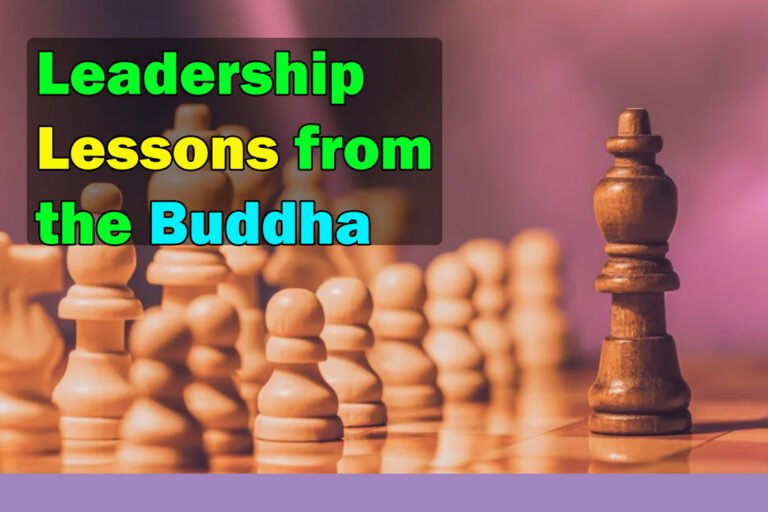Introduction
While most people recognize the Buddha as a spiritual teacher, he also displayed remarkable leadership in addressing conflict, governance, and social inequality. His calm, practical responses to disorder and injustice offer timeless insights for modern leaders navigating complex political and social challenges.
Building Inner Stability: Three Guiding Principles
To ensure harmony within the monastic community (Sangha), the Buddha emphasized three foundational practices:
- Ethical Strengthening
Cultivating personal integrity, honesty, and responsibility.
- Empowerment Through Insight
Encouraging individuals to grow through understanding and awareness.
- Maintaining Communal Order
Establishing rules (Vinaya) and moral standards to guide behavior and prevent disorder.
These principles created a strong foundation that enabled the Sangha to respond to external pressures with calm and unity.
Understanding the Root Causes of Conflict
The Buddha taught that many societal problems stem from three harmful mental states:
- Greed (lobha)
- Hatred or Anger (Dosa)
- Delusion (Moha)
Rather than addressing only the surface of social issues, he urged transformation at the root level. By confronting these tendencies within themselves, individuals and communities could progress toward long-term peace and justice.
The Threefold Path: Discipline, Focus, and Insight
To support inner transformation, the Buddha promoted a three-part training system for both monastics and laypeople:
- Ethical Conduct (Sīla)
Grounded in the Vinaya system, it promotes self-discipline and discourages harmful actions.
- Mental Concentration (Samādhi)
Meditation practices that cultivate emotional stability and mental clarity.
- Wisdom (Paññā)
The ability to perceive reality with clarity and to act with compassion and insight.
These pillars form a comprehensive framework for personal development and ethical leadership.
Responding to External Disruption with Dignity
Throughout his life, the Buddha encountered criticism, disruption, and misinformation. Rather than respond with hostility, he chose restraint, silence, or reasoned dialogue.
When rival groups attempted to disrupt his talks or turn rulers against him, the Buddha chose to refrain from retaliation. He discouraged his followers from engaging in superiority or public confrontation.
His example teaches that strength in leadership is often found in a calm and principled response, not in aggression.
Participating in Politics with Respect
While the Buddha did not seek political power, he engaged with rulers and mediated conflicts between kingdoms. He marked his approach by:
- Nonviolence
- Constructive dialogue
- Focus on public well-being.
In one notable case, when leaders tried to turn a king against the Sangha, the Buddha responded with truth and peaceful engagement—not outrage. His leadership model emphasizes that political involvement should serve justice, wisdom, and the people’s welfare.
Promoting Peace and Social Welfare
The Buddha’s teachings extended beyond spiritual practice to economic justice and social harmony. He supported principles that are still relevant today:
- Fair use of land and resources
- Cooperation among communities
- Nonviolence and ethical governance
- Access to health, education, and fair opportunities
His concern for the common good made his leadership inclusive and sustainable.
Conclusion: Timeless Lessons for Modern Leadership
The Buddha’s approach to leadership is a blend of discipline, compassion, and strategic insight. He addressed conflict without aggression, upheld ethics without rigidity, and promoted peace without political manipulation.
Modern leaders—whether in politics, business, or community life—can apply these enduring lessons:
- Tackle root causes, not symptoms.
- Lead with empathy, not ego.
- Build systems that balance freedom and responsibility.
In a time of division and uncertainty, the Buddha’s path offers a guide to wise, compassionate, and effective leadership.



[…] The Buddha’s style of leadership is especially relevant in a time of global crises—climate change, inequality, mental health struggles. Leaders rooted in compassion and wisdom are essential for navigating these challenges. […]